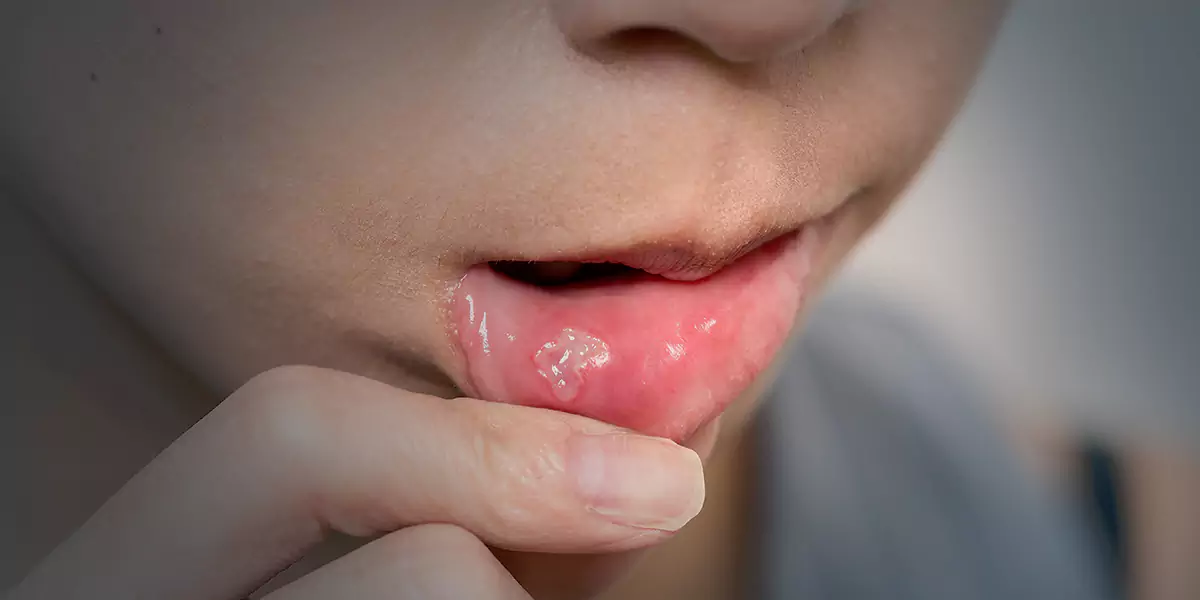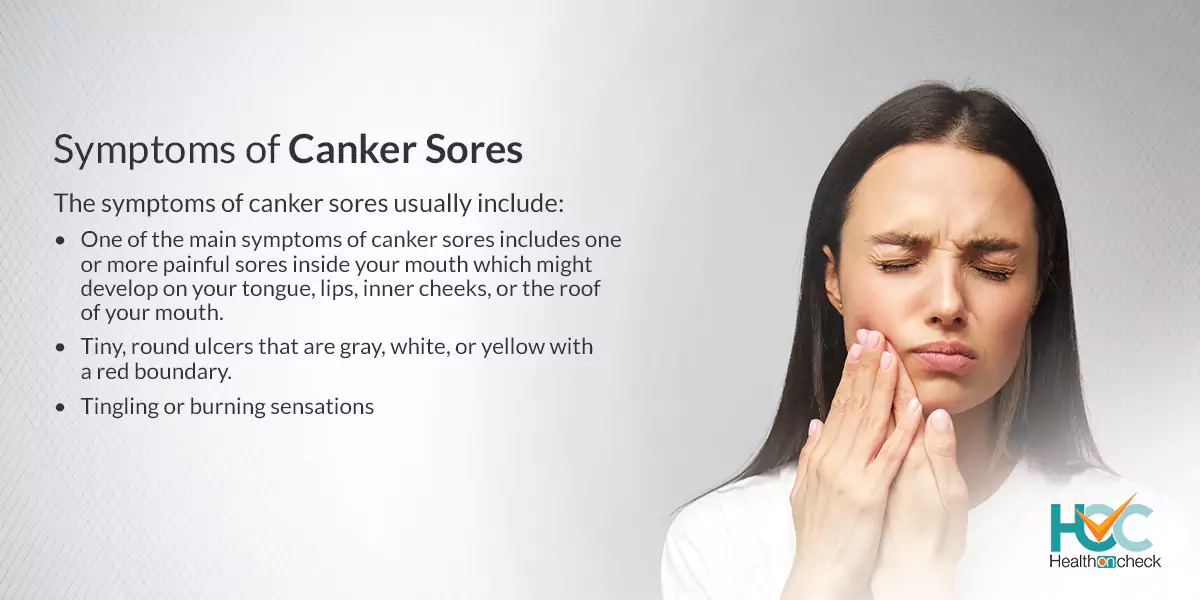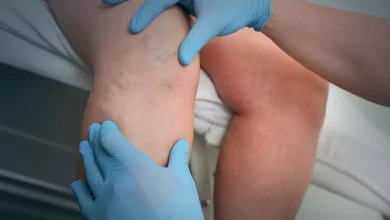All about Canker Sores?

What are Canker Sores?
Canker sores, also called aphthous ulcers, are shallow and small lesions that develop on the soft tissues in your mouth or underneath your gums. Unlike cold sores, canker sores don’t form on the surface of your lips and canker sores are not contagious but they are painful, which can create problems while eating and talking. Canker sores usually go away on their own in seven to fourteen days. You shall consult with your doctor or dentist if you have abnormally big or painful canker sores that don’t seem to heal.
What are the Types of Canker Sores?
The types of canker sores include:
Minor canker sores: They usually form three or four times a year and typically occur in children and teenagers. In size, they are not more than 1 centimeter across which gets well in about a week leaving no scars.
Major canker sores: They are not common and are bigger which last above 2 weeks. They usually heal with scarring.
Herpetiform canker sores: These types of canker sores are rare and show up as an amalgamation of small ulcers. They generally heal in about a week.
What are the Symptoms of Canker Sores?
The symptoms of canker sores usually include:
- One of the main symptoms of canker sores includes one or more painful sores inside your mouth which might develop on your tongue, lips, inner cheeks, or the roof of your mouth.
- Tingling or burning sensations.
- Tiny, round ulcers that are gray, white, or yellow with a red boundary.
In severe instances, you might also experience:
- Fever.
- Physical sluggishness.
- Lymph nodes that are swollen.
What are the Causes of Canker Sores?
The exact cause of canker sores is not clear but experts have discovered various causes that might trigger the formation of these ulcers, including:
- Stress.
- Injury inside your mouth.
- Eating acidic foods, like citrus fruits.
- Taking nonsteroidal anti-inflammatory drugs (NSAIDs), including ibuprofen.
- Using dental appliances, like braces or ill-fitting dentures.
Complex canker sores might occur in people with immune system complications such as:
- Lupus.
- Behcet’s disease.
- Celiac disease.
- Ulcerative colitis.
- Crohn’s disease.
- AIDS.
Experts have also linked canker sores with nutritional deficiencies in vitamin B-12, folic acid, zinc, or iron.
What are the Risk Factors of Canker Sores?
Canker sores can happen to anyone but it has been noticed that they are more common in teens, young adults, and females.
Having a family history of canker sores also increases the risk of developing canker sores which might be because of heredity or to a shared factor in the environment, like some specific foods or allergens.
What are the Complications of Canker Sores?
If your canker sore is not healed a few weeks of its own then you might develop more serious complications, including:
- Discomfort or pain while brushing your teeth, eating, or talking.
- Tiredness
- Sores which are spread outside of your mouth
- Fever
- Cellulitis
How Canker Sores Are Diagnosed?
Your doctor can perform a physical exam to diagnose canker sores. They may also prescribe a blood test to check if you have a vitamin deficiency or any other health complication that might be causing the ulcers.
What are the Treatment Options Available for Canker Sores?
Over-the-counter or prescription products might be prescribed by your doctor to ease and manage your symptoms. Your doctor might refer a few canker sore remedies including:
- Taking topical anesthetics, including benzocaine.
- Using mouth rinses that contain chlorhexidine, hydrogen peroxide, or dexamethasone.
- Applying corticosteroid ointments including beclomethasone, fluocinonide, hydrocortisone, or hemisuccinate on the affected parts of your mouth.
- Antibiotics, like doxycycline for returning, or recurrent, canker sores.
If your canker sores formed due to nutritional deficiencies, you might be prescribed certain vitamins or supplements by your doctor.
If your canker sores are severe then your doctor might recommend cauterization which means burning the affected tissue which can sterilize the area, decrease pain, and fasten the process of healing.
Living with Canker Sores
Canker sores are usually irritating and sometimes painful, along with being inconvenient, but they’re not serious. Unlike cold sores, canker sores do not occur because of infections and are not contagious. You can ease the symptoms by using over-the-counter canker sore treatments. In case your symptoms are not improving after trying these products, you should consult with your doctor who can tell you how to get rid of canker sores which can help you get back to your normal life.
Whom to Consult?
Usually, canker sores heal in a few days and the ulcers generally get well on their own within one to two weeks, but if your canker sores last for more than two weeks, then you should meet your doctor and seek treatment.





